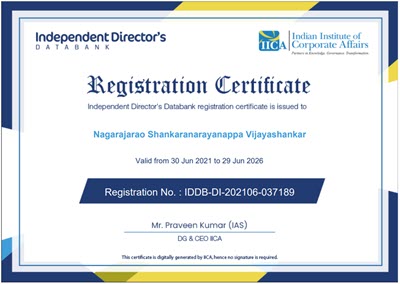[This is in continuation of the previous article 0n the subject]
The article which appeared in Economic Times today credited to Ms Namita Wahi tries to put in a legal argument that the recent demonetization of the notes announced on November 8, 2016 was not constitutionally valid. Since there is a PIL being considered by Supreme Court at present, the article could be treated as an attempt to influence the decision of the Court and hence needs to be countered.
In my opinion, the Court need not have even admitted the petition since the admission is a needless intervention into the executive functions of the Government. Additionally, some comments said to have been made by the members of the bench during the preliminary hearings were critical of the Government indicating an under current of hostility which could have been avoided.
Now the emergence of articles such as what Ms Namita Wahi has authored only adds a voice to the politicians opposing the move for their own selfish reasons and an excuse to the Judiciary to scrap the demonetization move.
In the article, the author has raised the issue of “Power of the Government under Section 26(2) of RBI Act, the constitutional right to property under Article 300A and earlier Supreme Court decision in Jayantilal Vs RBI after 1978 demonetization.
Under Article 300A “No person shall be deprived of his property save by the authority of law”. According to the author, old currency formed part of the “Property” and a mere executive order by the Government/RBI cannot be considered as “due process of law”. Accordingly, the author objects to there being no “Ordinance” or a “Bill passed as an Act of the Parliament” before the demonetization was announced.
In parts of the article, the author is either confused herself or is trying to mislead the public by using the term “restricting fundamental right”.
Property is now no longer considered a “Fundamental Right” and hence no argument can be sustained on “Reasonable Restriction”.
Another objection raised is that the notification is discriminatory between holders of bank account and non holders of bank accounts. This is perhaps for the fact that holders of bank accounts could exchange upto Rs 10000/- twice a week where as others were allowed exchange of Rs 4000/- only. In my opinion this was an operational guideline and did not affect the legal rights of the holder. Asking for the identity of the person before an exchange is made is only logical and in the context of possibility of money laundering by the black money holders was a necessary precaution. Considering bank account holders as identified persons was therefore a reasonable ground for providing a higher exchange to them.
All the temporary measures such as restrictions on withdrawals did not extinguish any rights of the holder since he can exchange the currency anytime upto March 2017 under various means.
The problems that the daily wage earners etc are facing is a creation by their masters who are refusing to pay them through alternate means and the Government cannot be faulted for this.
Now coming back to the “Right to Property”, I think we need to consider “Currency” as a “Guaranteed obligation” and not as a “Property per-se”. It is an “Actionable Claim” against RBI Governor and has to be treated as such.
The argument of “Compulsory Acquisition of property without due process” does not arise because firstly currency is not property and secondly there is no compulsory acquisition.
If any person is in possession of the demonetized currency, they have been given avenues to surrender them into their Bank account upto December 31, 2016 or to RBI upto March 2017 and their entire holding is available for them to withdraw. If however they cannot explain their source of income etc, it is a matter outside demonetization and has to be settled with the tax authorities. The scheme of payment of extra tax to regularize the deposit is an alternative which the account holder can opt at his own volition.
As regards the comment that “insofar as the government failed to ensure that 100% of the population had bank accounts prior to the issuance of this surprise notification, the classification may be assailed as arbitrary and violative of the right to equality under Article 14.”, it is necessary to state that once every bank was authorized to open “Zero Balance” accounts, there was no restriction on any person opening a bank account. If any person has not so far opened an account, there is time upto December 31, 2016 to still open the account and deposit the old currency holding. Hence the contention of the author is arbitrary and malicious.
It is important to realize that it is the fundamental duty of a citizen of this country to support an executive action which all of us know has throttled the fake currency holdings, the Naxalites, the Terrorists and the Pakistani currency suppliers besides the Indian black money holders. This obligation applies not only to ordinary citizens but also to the intellectuals like Ms Namita Wahi as well as the members of the judiciary.
Some other commentators are arguing that an amount of Rs 11.5 lakh crores was expected as black money in circulation and since most of it appear to have been deposited in the Banks, the Government may have failed in its objective. But we must remember that firstly the estimation of 11.5 lakhs may be wrong and may not include the currency supplied by Pakistan and what was hoarded by some individuals and kept out of circulation.
The hardships that people are facing today are the result of the handiwork of corrupt Bankers and Politicians who have diverted the supplies of new currency and has to be handled separately.
The need for confidentiality and the delay in calibrating ATMs are understandble and cannot be justification for questioning the demonetization issue.
Similarly the need for cyber security being strengthened, digital payment systems to be made free, introduction of cyber insurance, RBI circular of Aug 11 to be expedited are all desirable and we can rap the Government for inaction in not doing enough in this regard. But again this is no reason to fault the decision of demonetization.
The possible economic slow down is a conjecture and there is no basis for even Dr Man Mohan Singh to arrive at a reliable estimate. The very fact that all politicians are opposing the move vindicates the Government that they have really caught the opposition napping and driven them crazy. Some of them are colluding with organizations and media and trying to mislead the public and possibly give some material for the Judiciary to take an adverse view of the demonetization decision.
The Supreme Court however must realize that they donot have a realistic option of putting the clock back however much they may wish. If they do, the respect that judiciary have today will take a big dent since the people will see it as an attempt to protect the black money within the system.
Alternatively, the Supreme Court, may consider demanding an immunity for the Judicial community from being questioned on “Unexplained Income” by tax authorities declaring any such move as “Contempt of Court”. This can be justified as preventing undue pressure being put by tax authorities on the members of judiciary. Probably Government also may consider such a proposal acceptable for strategic reasons to maintain the harmonious relationship with the judiciary.
I will not be surprised if this prediction comes true.
Naavi










